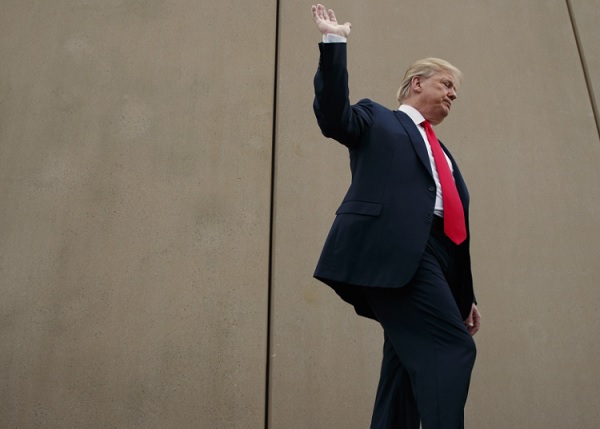Officials in China, Mexico, and Canada criticized Tuesday a pledge made by President-elect Donald Trump on social media to impose new tariffs on all three of the United States’ largest trading partners on the first day of his presidency.
Trump said the move, which appears to violate the terms of a free-trade deal Trump signed into law in 2020, is aimed at clamping down on drugs − fentanyl especially − and migrants crossing into the U.S. illegally.
The president-elect said he would sign an executive order immediately after his inauguration introducing a 25% tariff on all goods coming from Mexico and Canada and a 10% tariff on goods from China.
Trump takes office on Jan. 20, 2025.
“Both Mexico and Canada have the absolute right and power to easily solve this long-simmering problem,” Trump said in a post on Truth Social, a platform he owns. “It is time for them to pay a very big price!” He accused China in a separate post of failing to block smuggling of U.S.-bound fentanyl, a synthetic opioid.
There was quick push-back to Trump’s comments from all three countries.
Liu Pengyu, a spokesperson for the Chinese embassy in Washington, said: “No one will win a trade war or a tariff war” and “the idea of China knowingly allowing fentanyl precursors to flow into the United States runs completely counter to facts and reality.”
Mexico’s finance ministry said that the U.S.-Mexico-Canada Agreement, a trade pact Trump sponsored during his first term, provided “certainty” for investors. Mexico’s President Claudia Sheinbaum said she sent a letter to Trump after his statements. “Dialogue is the best way,” Sheinbaum said she wrote in the letter.
Doug Ford, the premier of Ontario, Canada’s most populous province, said the tariffs would ” devastate workers and jobs” in both the U.S. and Canada.
A tariff is effectively a tax imposed by one country on the goods and services imported from another country. Oil is the top U.S. import from Canada, according to the U.S. Energy Information Administration. The largest category of goods imported to the U.S. from Mexico is cars and components for cars. The U.S. imports a significant amount of electronics from China. Some goods are exempt from tariffs because of the U.S.-Mexico-Canada Agreement.
During his first term, Trump used trade threats as a negotiating tactic. He slapped tariffs on billions of dollars of Chinese-made goods. Trump had hoped to secure a new trade deal with China, but those plans fell apart with the arrival of the coronavirus pandemic in 2020.
It’s unclear whether Trump will follow through on his new tariffs pledge.
CLICK HERE TO READ THE FULL ARTICLE ON USA TODAY
San Miguel Times
Newsroom

